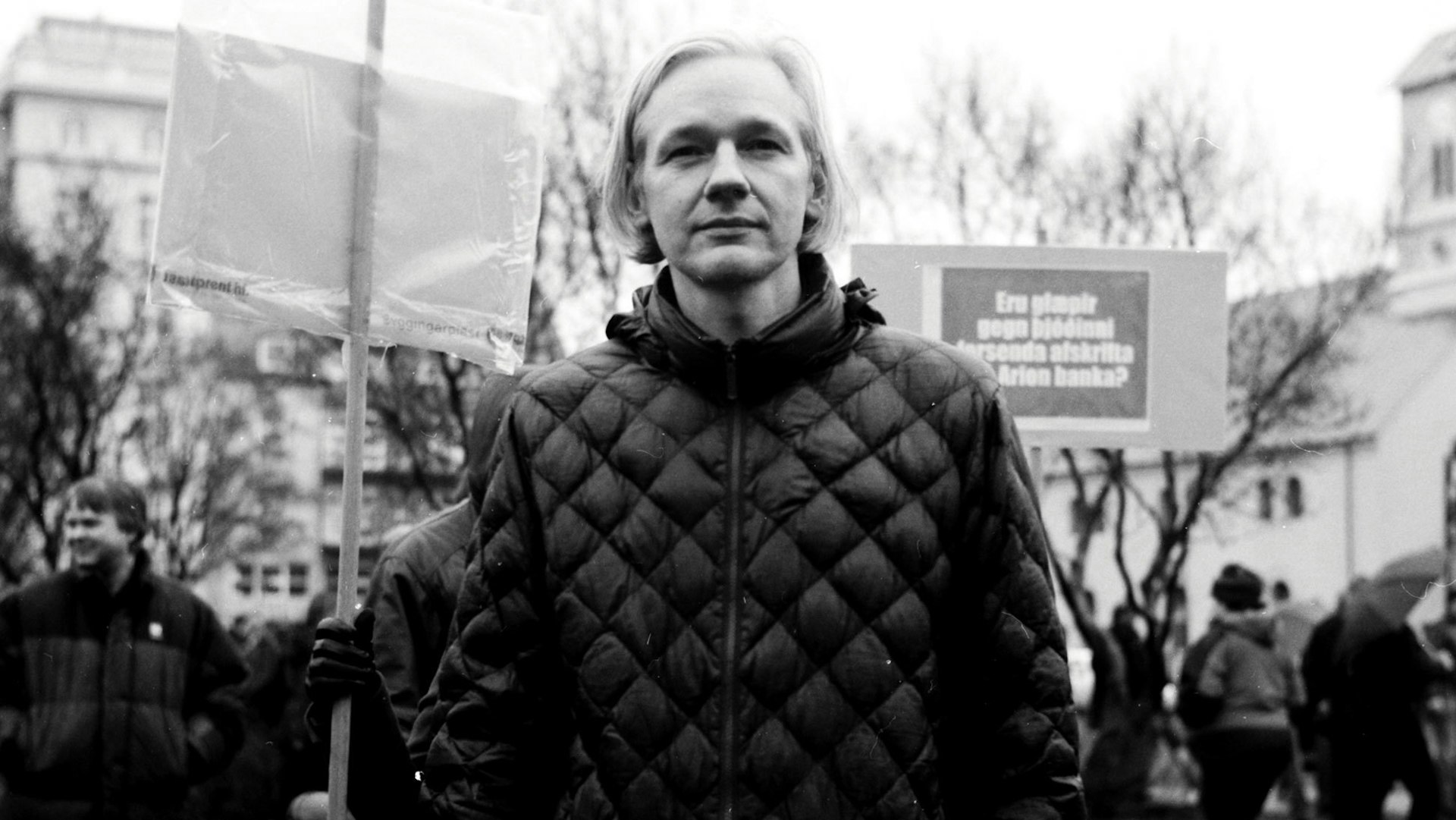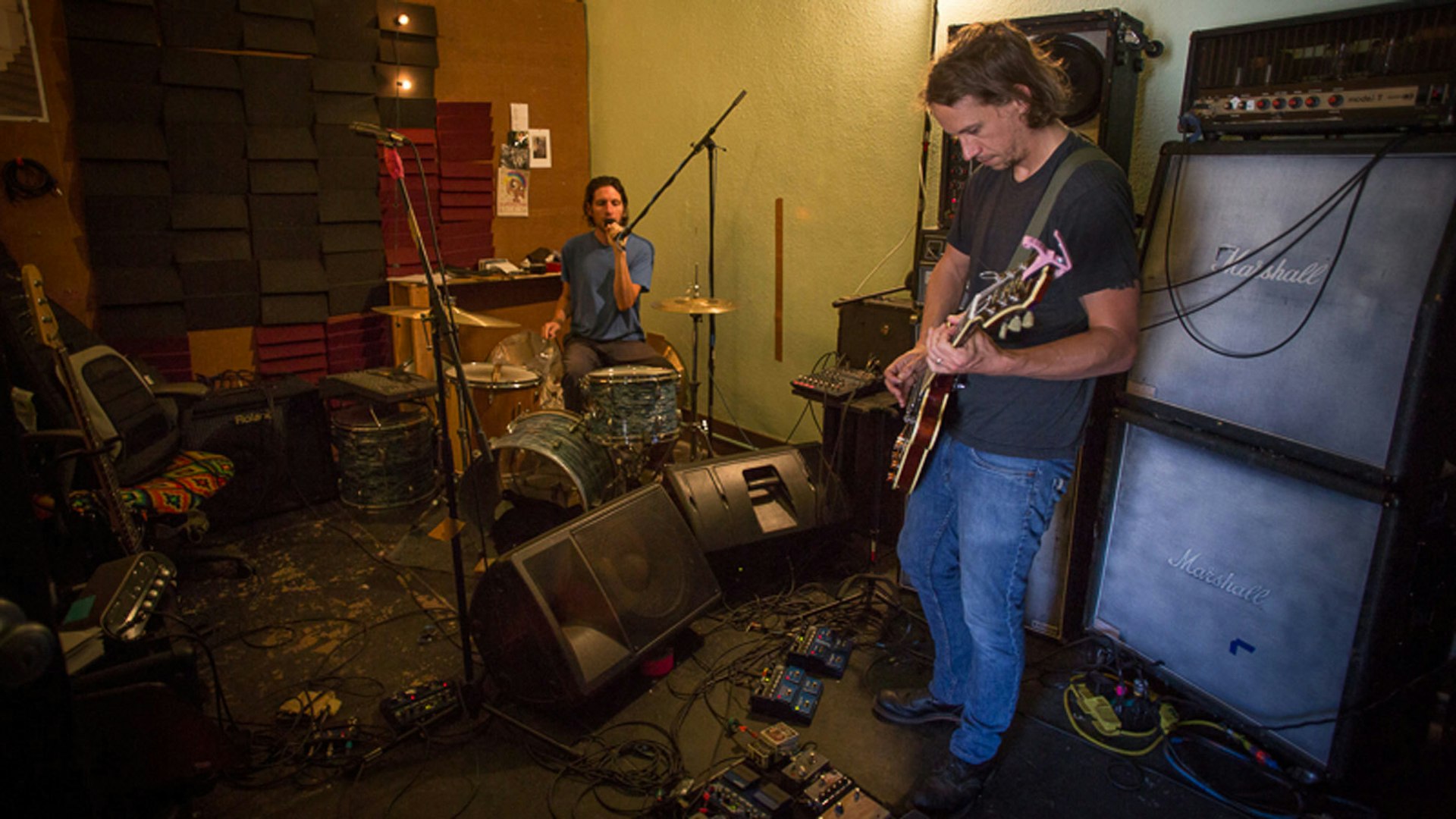
Alex Gibney
- Text by HUCK HQ
- Photography by Julian Assange c/o We Steal Secrets: The Story of WikiLeaks
Alex Gibney is a film-maker who excels at revealing the human failings that lead to episodes of widespread wrong-doing. His previous films have focussed on topics ranging from the use of torture by US forces in Taxi to the Dark Side to corporate fraud in Enron: The Smartest Guys in the Room. Gibney’s approach often serves to blur black and white moral boundaries and reveal the human side of people who have committed transgressions that shocked the world.
In We Steal Secrets: The Story of WikiLeaks, Gibney may have found his most interesting subject yet: Julian Assange. The divisive figure has alienated many of his original supporters while gaining a band of followers who fiercely defend his reputation. Even among those who support the work of WikiLeaks, some see Assange as a hero, others as an unfortunate distraction. But the truth for Gibney is, predictably, far more complex. Here, the director shares some truths of his own.
Whitleblowers
“There’s no doubt whistleblowers have to rudder against the culture in which they’re involved. Otherwise they wouldn’t be whistleblowers and everybody would be blowing whistles. So there must be a kind of loneliness in that. It’s hard to measure yourself in that moment of time because it takes a lot of courage to come forward and to say, “I’m doing this and I’m doing this for this reason. In some way, I’m betraying the immediate culture around me for a greater good.” That’s very hard. I think whistleblowers are a good thing. I think it’s terribly important and we need to figure out structures to protect and embrace them. But I think we also have to realise the act of whistleblowing might be something we all resent because it rudders against the dominant culture.”
Spy Games
“I think the great tragedy of Julian Assange is he started to play the game according to the rules laid down by the American national security state. He started to operate like a spy instead of operating like a transparency radical. Once you start playing the game of the spy, you’re going to lose because there are other spies who are better at that game than you are.”
Working Under Constraints
“There’s a quote from (Nobel prize-winning author) Andre Gide which is: “Art is born of constraint and dies of freedom.” Sometimes constraints can make for powerful art. The fact we didn’t have access to Bradley Manning meant we relied on his chats. I think they’re a vehicle to understanding something about Manning, but also about understanding something very profound about who we are in the age of the internet. This idea of putting on film these written exchanges between (hacker Adrian) Lamo and Manning, I think were very powerful. It’s something we might not have captured if we had access to interview Bradley Manning. I’m not saying it would be better or worse, but it would have been different. Sometimes films go where the materials take you and in this case the chats were fantastic material.”
Ideas and Men
“I came into this film at the beginning very much as a supporter of Assange. I was inclined to see him as the unalloyed hero of the film. I think I became disillusioned with the man while still remaining true to the principles that he originally espoused. Supporters have denounced the film as being anti-WikiLeaks. I think that any reasonable reading of the film will not reach that conclusion. It’s sometimes critical of Assange but where is it written that if you’re critical of somebody, or some part of something that somebody does, that you’re anti-them?
Mysteries
“I like mysteries. I like the mystery of cinema, but I also like mysteries in general. I’m a big Sherlock Holmes fan. I look at stories that have the quality of a mystery story or a detective story. Those to me are the best stories. Trying to seek out the truth but in some way that does so in an unofficial way because that’s what private eyes or detectives are. They’re unofficial truth seekers. They’re not the police, they outside the law and as Bob Dylan said “to live outside the law you must be honest.”
Asking the Right Questions
“I don’t see myself that much as Sherlock Holmes, I’m a little bit more like Columbo. You know shuffling along, asking dumb questions. I find that dumb questions end up getting the best answers because if you go in thinking you’re so smart and that you’re smarter than everyone else, you don’t end up learning very much. If you go in thinking: “I don’t understand this very well and I’d sure like to understand this better,” you end up doing precisely that.”
Read a review of We Steal Secrets: The Story of WikiLeaks from our sister mag, Little White Lies. The film is released on DVD today.
